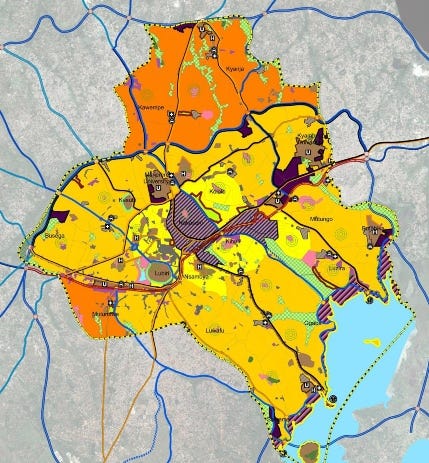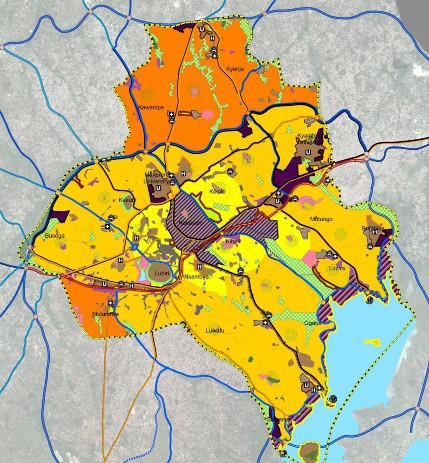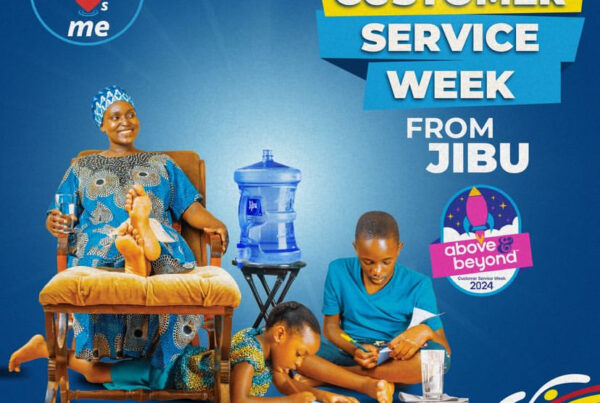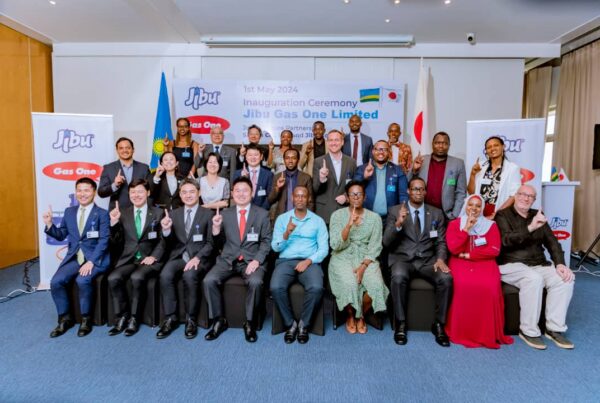Peter Holt of the IFA’s Social Sector Task Force and Jibu Country Director Mark Mutaahi share a wealth of advice on franchisee development, regional expansion and stakeholder engagement in this intriguing blog:
LCSA Jibu Blog Entry Number Five
April, 13, 2017
Today, Peter offered a wealth of advice on strategies for stakeholder engagement, franchisee development, training, and the role of the corporate store.
Mark began by sharing with us an exciting event coming up — Jibu will be hosting their investors and stakeholders for a visit in May. Seventeen people will be traveling from the U.S. to spend a week in Africa, learning about and observing Jibu’s operations. Mark explained that they are busy planning the event, which will consist of executive-level meetings with himself and Galen (CEO), team meetings with the entire corporate staff, and interactions with the franchisees to discuss strategy, challenges, expansion possibilities, and other plans. While he is excited for the opportunity to reenergize himself and his staff, there is a lot to do before everyone gets there!
Beyond logistics, accommodations, and travel arrangements to sites in Uganda, Rwanda, and Kenya, Mark is busy working with Galen to plan their messaging. For himself and his staff, in the weeds of day-to-day operations, it can be hard to remember that Jibu is “bigger than water”. Even the physical aesthetics of the office are very water-specific, and Mark is working to push the vision beyond the product. While this will be important to communicate to the visiting stakeholders, it will also be a great occasion to revive and strengthen the mission to corporate staff and franchisees alike.
Peter has some key suggestions for Mark while planning Jibu’s Stakeholder/Investor Week. He reminds Mark that he should have four goals. These goals are applicable to any group meeting such as this, whether it’s with investors or even when holding a franchisee meeting.
1. Educate: One of the top reasons to plan a get-together like this! Mark should show the investors what they’re doing and how it’s working.
2. Motivate: When you are bringing people together, you want to remind them that they aren’t just a single unit; they are a part of this amazing international network that is on a sacred mission to change lives. This is an excellent opportunity to remind everyone how they are improving the lives of the people they serve. Investors in this type of business are looking for more than just a return on their dollar, so you must make sure you are reinforcing and emphasizing the mission and the power of what you are trying to accomplish.
3. Celebrate: Any time you have a gathering, it’s a great time to take a moment and celebrate your accomplishments. When you bring your franchisees together, you celebrate top performance, a new program, a store that has reached an anniversary. Each little individual victory echoes through the network, and is a hugely motivating factor for franchisees and stakeholders alike.
4. Make New Friends: With every opportunity, individuals at various levels of the organization can network and connect. You are doing more than presenting the data, and reinforcing Jibu’s mission, you are creating an experience for all of the group members. You are helping your guests connect with you, your corporate staff, the franchisees, and other investors, and how you make them “feel” will be as important as what they learn.
Peter emphasizes that Mark will be playing travel agent, host, and concierge while curating the perfect experience for their guests. For some of Jibu’s stakeholders, this may be their first time to Africa, so Mark will have to go out of his way to make sure everyone is comfortable. In the words of Maya Angelou, “No one will remember what you say. No one will remember what you do. Everyone will remember how you make them feel.” For the stakeholders, they are not truly investing in what’s on the spreadsheet, they are investing in Mark, Galen, and Randy — and the dream that Jibu offers!
Peter next suggested a great idea for franchisor-franchisee relationship building. In his own franchise network, a group of chiropractic care clinics called “The Joint Chiropractic”, the new Vice President of Operations received reports that the franchise owners wished that the corporate staff had a better understanding of what truly takes place in the day-to-day operations of the clinics. They had the feeling that corporate didn’t have a complete understanding for the difficulties they faced, and were making decisions without ideas about the day-to-day impacts they would have. To combat these concerns, the VP of Operations arranged an Employee Visitation Day.
For one day, the Corporate office shut down completely (besides some members of the IT team), and each staff member was assigned a clinic to visit for the day. They worked in a clinic from 10am to close at 7pm, performing basic functions and getting a lay of the land. Peter found himself processing patients, working with doctors, and they all felt it was such an interesting and successful experience that the plan on making it an annual event.
Mark thought this was an amazing idea, and said he was going to steal it and implement it right away. It would be really easy to do, and would be a great way to provide insights, perspective, and empathy, and build relationships across the teams. He thinks the franchisees will really appreciate it, and they have found that these types of engaging activities have measurable and sustaining impacts on energizing the teams. He’s asked us to keep him accountable — so we will be expecting a full report on the Jibu Staff Visit Day during the next call!

Critical Issue #1: Franchisee Selection Criteria/Critical Issue #2: Franchisee Development
Last call, Mark introduced his new Mystery Shopper program, and told us about the preliminary findings. To recap, staff members all identified someone who lived within each franchise zone of operation, and gave them money to buy their first bottle of water and report back on their experiences. Since then, Mark compiled the discoveries from the 17 mystery shoppers to evaluate and present.
Mystery shoppers were asked to report on several basic aspects of the shop experience, such as: Did they take your name? Did they bring the water to your car? Were they presentable and friendly? Did they introduce themselves? Did they explain how the business works? Did they explain the refill model? Did they explain how radically lower their prices were? They wanted to make sure that the stores were exhibiting basic standards of service, and knowledge about the brand and the business.
He shared the findings just yesterday at the monthly franchise meeting. This meeting was a little different, because he invited the store managers to join for the presentation. The reports from the mystery shoppers were presented to the group, with verbatim responses — and the results revealed a clear breakdown between what the franchisees were expecting and what they actually recorded from the mystery shopper visits.
On the positive side, many of the findings were really good. Most customers felt the staff were friendly and presentable, and everyone said that the stores looked clean and professional. However, there were some unexpected negatives as well. Many staff members failed introduce themselves and to provide crucial information about the service and refill model. They also failed to capture customer information — such as names and addresses — when the shoppers called or visited the store. This data is needed to build a sales pipeline and for projections and evaluations at the corporate level. Additionally, when it came to delivery, many stores were unreliable at best. Some took several days to deliver, and did not adhere to delivery instructions — one customer had the water delivered to their business after hours. Another staff member told a mystery shopper that their delivery guy was so unreliable that he’d be better off to just pick it up himself.
This meeting was a little tense for a couple reasons. First, corporate did not warn the franchisees or the store managers that the mystery shoppers were coming, and there is some disagreement about whether or not that was a fair way to approach it. Additionally, these findings were reported verbatim, with the store managers and the franchise owners, who are technically their bosses, together in the same room. Some of the employees felt like they were being thrown under the bus or publically shamed.
However, Mark’s team was able to turn it around into a really great meeting. They enlisted the help of a customer service expert who specialized in training, and spent the next two and a half hours role-playing different scenarios: How to greet a customer, how to handle a call, how to introduce yourself and the business model, and how to provide efficient and friendly service. They also, based on Peter’s advice from the last call, rolled out a two-week contest. Whichever store has the largest number of callbacks will receive a cash prize for the store manager — equivalent to half of their monthly salary!
This meeting left all the employees excited about the contest, and are reinvigorated to track the customer data. Mark believes that this will help solidify a happy message from corporate, make some strides in terms of service, and transform that into additional sales down the road. Peter agrees, and mentioned a similar contest his venture, The Joint, recently offered. For 16 of their chiropractic clinics, they tracked three specific metrics: new patients, conversions to memberships, and the attrition rate, or how many people drop out of membership. While the prize was nowhere near half of the manager’s salaries, they still offered cash prizes for each of the metrics.
Peter said that those 16 stores, compared to a control group of similar stores, outperformed across the board, which translated to overall increased revenue for the company over the contest period. He praised this approach, because ultimately, all you are doing is motivating people to do the right thing — and pushed Mark to continue to come up with creative ways to encourage their franchisees.
Mark agreed, and also expressed amusement at how the franchisees think he doesn’t know what he’s talking about, however will hang on to every word of an outside consultant. Peter agreed that it is generally worth it to pay for someone to come for a day — and reminded Mark that the sentiment is universal: You are never a prophet in your own land. He recalled a regional developer who also ran one of the highest performing stores in the system, and had 20–30 franchisees in his region that he supported. All of those franchisees wouldn’t listen to his advice, and made excuses about his location as being the reason his store performed so well.
Meanwhile, other regional developers were paying him to travel across the country to work with individual units in their regions. It just takes an outside perspective sometimes for people to listen — third party verification is always good. You get stuck in the grind of the day-to-day work, forget that your unit is part of something greater — and a fresh evaluation often feels more credible.

Critical Issue #4: Regional Development/Expansion
Another topic Mark considered today was the role of the corporate store. As you may remember from the last call, the Uganda market is beginning to scout and research locations for the peri-urban areas extending out from Kampala. One of the ways they are contemplating facilitating this expansion is through setting up corporate stores in the expanded territory, as a way to display and evaluate the model. Mark’s question to Peter is: How much do corporate stores play a role in validating the model?
Peter answered flatly — none. Being a franchisor means running two parallel businesses — one is concept, and the other is franchising — and the two are quite frankly unrelated. He asserts that there are generally two reasons to run corporate stores: To serve as a training and testing facility, and/or because the unit economics of the business is such that it is profitable.
He clarifies that it is important to have the flagship or corporate store as an initial operating model — if you don’t have an operating model, what is there to franchise? Additionally, it is a good strategy for learning. But, you must keep in mind that the franchisees as a whole can run units probably 20% more effectively and profitably than corporate — so if the unit economics are not strong enough to justify that 20% loss, their needs to be other benefits. He adds that if Jibu is trying to prove this peri-urban model, and they have the time and the resources to set it up, they absolutely should. At the very least they can get it up and running, add in the experiences of the franchisees, and continue testing, training, and refining the system.
The last item that Mark wanted to discuss today was the role of Corporate as an “enforcer”. He is concerned that some of the franchisees might end up in violation of regulatory requirements in terms of employee income tax deductions based on how they choose to compensate their staff. , and wants to know what his responsibility is to inform and monitor this situation — how involved should corporate be, beyond the contracts?
Peter says this is a matter of discretion. In the corporate world, if the contract clearly states their adherence to regulations, anything above that is not within Mark’s role. The franchise locations are independently owned and operated businesses, and that type of intervention is not justifiable in the traditional model. If they are compromising the brand or the quality of the water, shut them down — the franchisees cannot do anything to threaten the Jibu organization. But Peter doesn’t view whether they pay their taxes as his responsibility. You can tell them that it’s not appropriate, but it’s not Corporate’s role to be the enforcer. If they are not compromising the model — not hurting the quality of the offering, not putting the staff at risk, not violating employment equal opportunity or harassment laws — it is not, in Peter’s view, Mark’s role to intervene.
Next Steps:
On the next (and final) call, we should be able hear about what happens at the stakeholder/investor meeting, and get a recap of Jibu’s position and plans. It will also be interesting to learn of the results of the contest, and see if they continue the mystery shopping exercise to follow up on results. As the expansion unfolds, we hope to learn more about how the model works in a peri-urban setting, and see how Jibu chooses to address the enforcement issues from the perspective of a social enterprise whose mission is to create new entrepreneurs — they may have a different approach to guiding their business people than the purely corporate world. And, most of all, we can’t wait for a full report on Jibu’s first Staff Visit Day, as promised by Mark!






